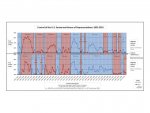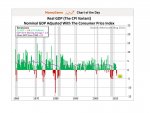- Joined
- Jan 28, 2013
- Messages
- 94,823
- Reaction score
- 28,342
- Location
- Williamsburg, Virginia
- Gender
- Male
- Political Leaning
- Independent
LOL...let me get this....you are whining about MY use of language and logic....while you can't recognize the difference between "marginalizing" a human being and his theory.
Further, YOU already agreed that his theory is OBSCURE when YOU described it as having a "mixed bag" of results.
Not only have you utterly failed on every single point, you still cannot see that you have continued this environmental debate in a thread on the BUDGET.
Please, for your own sake, let it end.
Tsk tsk tsk. So desperate. So meaningless. "Obscure" does not mean "mixed bag" in any construction. But enough. The only thing I can think of to explain this behavior is that you're trying to achieve in this forum the success that has eluded you in life. I don't think you'll make it here either.:2wave:


